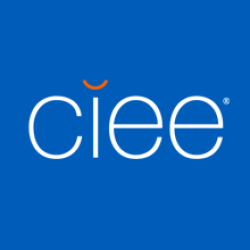Peacebuilding and Conflict Resolution Across Cultures
The Frederick Douglass Global Fellowship is a four-week leadership program for students of color that is set in Ireland and focused on peace, social justice, and conflict resolution. The core element of the program is a CIEE-designed academic course examining leadership through a cross-cultural lens.
Starting with the example of Frederick Douglass, the course integrates elements of conflict resolution, peacebuilding, and identity to teach students how effective leadership can positively transform societies and advance justice.
Changemaker Workshop
The program kicked off with a Changemaker Workshop hosted at Howard University in Washington D.C. Led by Movement Architect Mentor Dida, the group delved into the process of creating and delivering solutions to ameliorate social issues and work together to create a better future.

week one: EXAMINING THE CONCEPT OF GROUP IDENTITY
Students arrived in Dublin and began their studies by exploring the elements of national identity with Dr. Richard Howard, a CIEE-lecturer and professor at Dublin City University.
Dr. Howard explained the history of the tension between the Republic of Ireland and Northern Ireland and how internal conflicts arise within nations.

week two: Leadership in conflict and peace
After their week in Dublin, the Fellows travelled to Belfast, Northern Ireland, where they dove into the circumstances which brought Frederick Douglass and Irish abolitionist Daniel O'Connell together in Belfast during the 19th century on their respective crusades for human rights. They learned about different strategies for leadership and discussed the lasting legacies of both figures.
With this context, Fellows met with community leaders and discussed peacebuilding in the wake of the Good Friday Agreement/Belfast Agreement and Brexit, and learn how the trajectories of the U.S. and Irish civil rights movements have diverged from the 1970s to the present day.
Later that week, the Fellows were joined in the classroom by Ken B. Morris Jr., the great-great-great grandson of Frederick Douglass and Booker T. Washington, who shared about his experiences working to advance human rights and cited stories from his forefathers’ lives as examples of effective social leadership.

CIEE Morocco Center Director Madiha Chafik presented on Leadership in Conflict and Peace. She broke down how peacebuilding and leadership have helped Moroccans to overcome struggles among opposing forces throughout the nation’s history.

WEEK THREE: crisis intervention and resolution
Upon returning to Dublin, the Fellows learned how to approach and resolve conflict, how to effectively communicate across culture-defined communities and how this practice is the foundation for inclusive global leadership. Kyndall Cox offered a lecture on how to use awareness and critical thinking to view conflict holistically and equitably before acting as a leader. He emphasized that to be an effective changemaker, students must be able to properly communicate and work with people from different cultural backgrounds. He offered guidance on how to think and act appropriately within a global context and communicate effectively across cultural divides.

The Fellows then travelled to Derry, Ireland where they met with Irish author, advocate, and media producer Don Mullan. Don shared personal stories about his experiences during the Northern Ireland Civil Rights Movement as a witness of the Bloody Sunday protest and massacre in 1972. He explained how he used his book, Eyewitness Bloody Sunday, to launch a new inquiry into the crimes committed during the protest, a case which became one of the longest-running inquiries into the Bloody Sunday event in British legal history.

week FOUR: LEADERSHIP AND PEACEBUILDING
Nettie Washington Douglass joined the Fellows for the entirety of their final week in Dublin, during which she served as a guest lecturer, sharing stories about the life of Frederick Douglass and engaging with the Fellows on a personal level.
During their final class, CIEE faculty members Quinton Redcliffe and Kyndall Cox guided the Fellows through the application of peacebuilding and discussing how they can use the lessons they learned during the Fellowship to overcome cultural boundaries to build sustainable peace and serve others through inclusive leadership.









